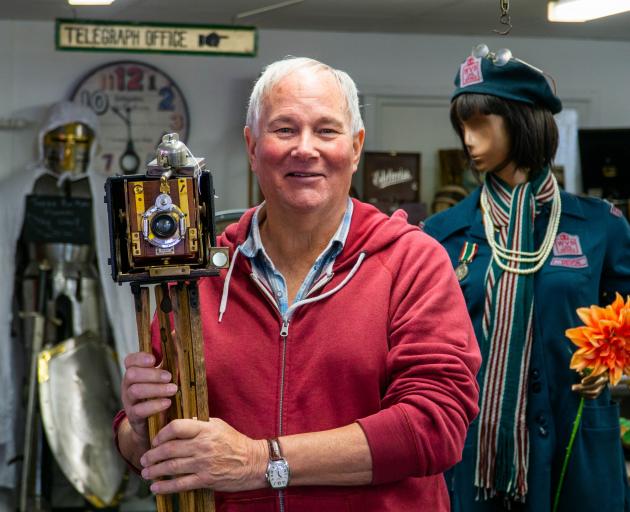
Next week he will open Past Times in Thames St, a store dedicated to clearing out his collection in preparation for his death.
The store has all manner of strange objects, including a letter signed by Adolf Hitler and the number plates owned by Queen Elizabeth II’s personal veterinarian.
The 73-year-old British collector has spent his life travelling the world, picking up any item that was interesting and rare.
Mr Slessenger said it all started when he was a boy going to fairs around London.
Stalls would showcase items left over from World War 2 which he loved looking through.
"I had a great desire to own this stuff."
There was no specific style or topic that he was interested in. He would travel the world and if something was rare and he liked it, then he would buy it, he said.
The result is a strange collection containing a bit of everything. There are Japanese swords on display beside a German spinning wheel from 1812, the same year New Zealand was founded.
"It’s all a bit eclectic, really," he said.
A prime example was a parchment of land sale from the English district of Huntingdonshire dating back to 1676, complete with seals and signatures.
Why did he buy it?
"It was completely rare."
The document was likely to the be the only one from that specific part of England of its nature, he said.
A self-described amateur historian, Mr Slessenger loved the story behind the items.
"Each piece, whatever you look at, is living history."
During his international travels Mr Slessenger found himself running a charity in Nairobi, Kenya, supplying goods to people who needed them.
It was then he discovered an opportunity for a second business, one selling wholesale supplies to schools all over Africa.
That work funded his lifestyle of travel and accumulation.
He lived and worked in Africa for 30 years, during that time he developed a reputation for collecting things, so people would approach him with rare items.
Now with thousands of items and 95 countries visited, Mr Slessenger is ready to sell up.
"If I died tomorrow, what’s going to happen to it?
"It’ll all go to auction and be sold for peanuts."
His children lived overseas and his collection was far too large for them to keep.
He cared for the items and knew others would too, which is what brought him to Oamaru.
"If I’m going to sell it, I need to sell it in a town with character."
Although Oamaru was small, travellers going through town would stop in and he was confident there would be collectors travelling to peruse his store.
There were a few items he refused to part with, including a 1787 grandfather clock which "kept excellent time" and some bookcases.
Mr Slessenger planned to run the shop until his collection was sold and found the hardest part was deciding on a price for everything.











